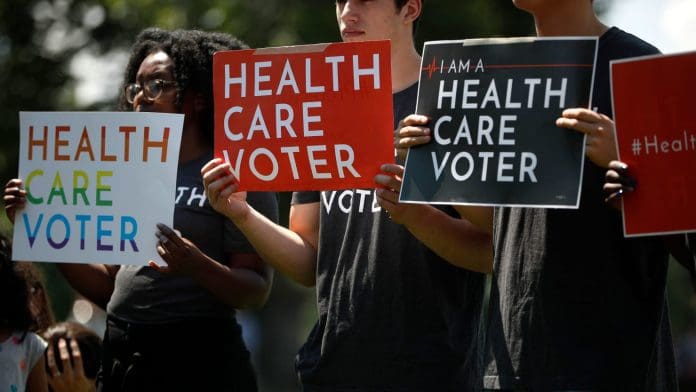The Affordable Care Act, or its more popular nickname, Obamacare, drastically changed the US healthcare system by reducing the amount families and individuals had to pay for uncompensated care. The act requires every US citizen to have health insurance and assists those who cannot afford a health insurance plan.
The initiative became law 12 years ago, with the timeline of key events that led up to the passage of the law beginning in 2009. That was the year when Nancy Pelosi, then-Speaker of the House, and a group of Democrats from the House of Representatives revealed their plan to overhaul the healthcare system.
The Democrats then had the filibuster-proof 60th vote to push through the Obamacare bill on their own. In the House, 219 Democrats and 1 Republican voted for the bill. 39 Democrats and 176 Republicans voted against it.
In the Senate, 60 Democrats voted for it while 39 Republicans opposed the act. Jim Bunning was the sole Republican who did not vote.
The Senate version was finally approved 219-212 by the House. 39 Democrats and all Republicans voted against it in the House. Obamacare finally became law in March 2010.
Obamacare Has Become More Deeply Entrenched In American Society
Even right-wing Republicans have acknowledged that if they were to repeal or replace Obamacare, they need to fix the sick US health care system. The Republicans have no alternative plan on their own that they can promote as a counter to Obamacare if they were to assume office.
Conservative Republican Senator Ron Johnson attacked the system but then turned tail fearing a backlash by trying to divert attention from what he had said. He said that his intention was not to replace or repeal the project, a humiliating backing away by a Republican Senator who 6 years ago termed Obamacare disastrous and harmful.
The Biden administration has revealed recent plans to make Obamacare stronger through executive action.
President Biden has sought to remove what experts call the ‘family glitch’ in the system. It is a legal interpretation that could lead to limited access for benefitting family members to subsidies if the health care provided by employers is too expensive.
The projected regulation if pushed through could save a substantial amount for over 5M Americans.






